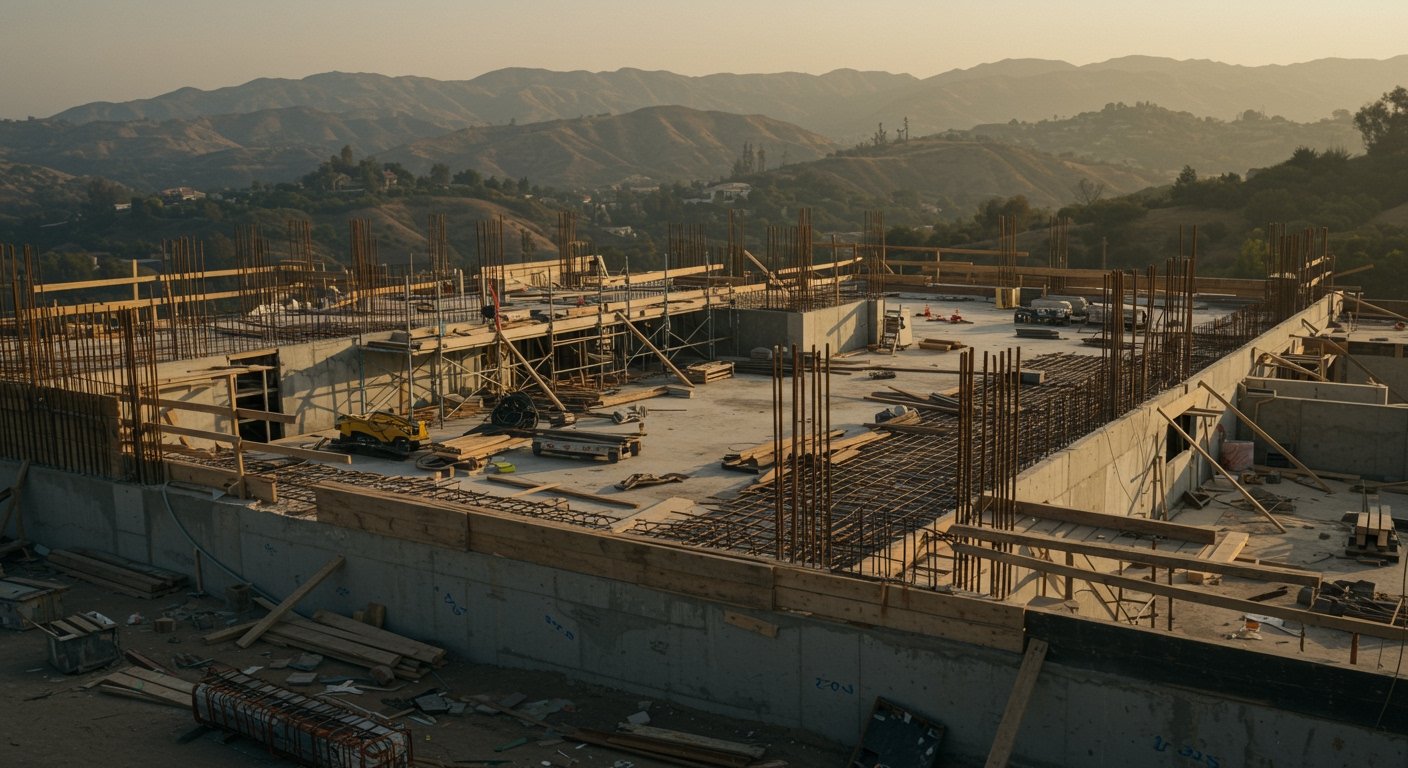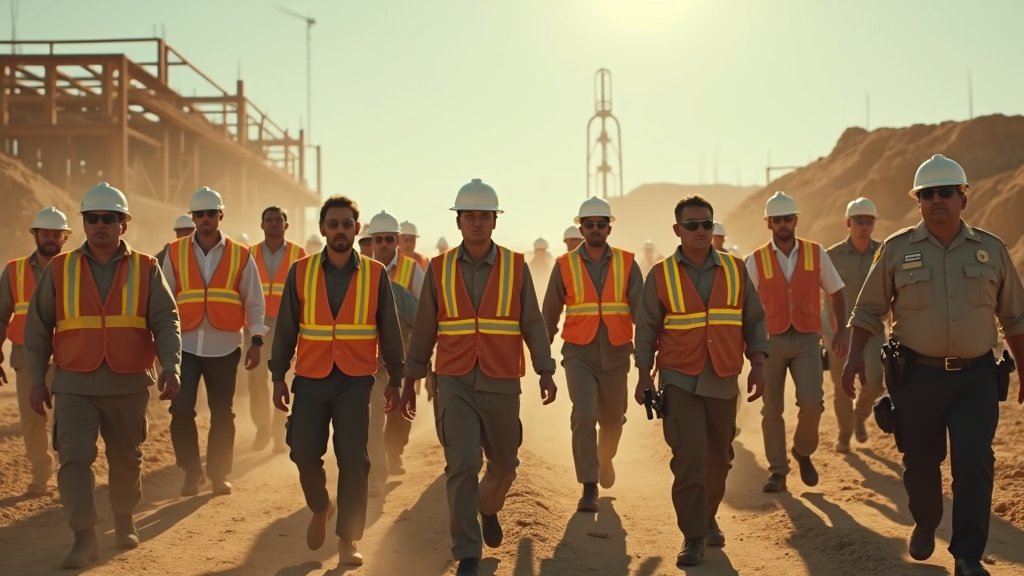Los Angeles, CA – Intense federal immigration enforcement operations across the Los Angeles area are casting a significant shadow over the city’s economy, hindering recovery efforts already underway following devastating wildfires six months prior.
Immigration and Customs Enforcement (ICE) raids have compelled thousands of predominantly immigrant workers to retreat from public visibility and, critically, from their jobs. These individuals constitute a vital component of the labor force necessary for ongoing rebuilding projects and the broader functioning of key industries within the metropolitan area.
Workforce Essential to Recovery Halts
Industries particularly reliant on immigrant labor are reporting immediate and substantial impacts. Sectors such as framing, landscaping, and retail renovation have seen work significantly slowed or halted entirely. The disruption extends to major development projects.
Arturo Sneider, CEO of Primestor, a real estate firm managing a portfolio valued at $1.2 billion in shopping centers and 3,000 apartments, highlighted the difficulties developers face in securing necessary crews. “We rely heavily on immigrant labor for our construction and maintenance,” Sneider stated, expressing concern over project delays and increased costs due to the current climate of fear.
Scale and Scope of Enforcement
The recent wave of enforcement saw immigration agents arrest more than 1,600 individuals across the Los Angeles area in just over two weeks, between June 6 and June 22. These operations targeted locations known to employ or gather immigrant workers, including car washes, construction sites, and day-laborer hubs.
Broader Economic and Social Fallout
The repercussions of the crackdown extend beyond stalled construction sites. Neighborhoods have experienced disruption, and some local businesses have reported closures, attributing them to the climate of fear impacting both their workforce and customer base. The increased police presence associated with managing protests and maintaining order has led to higher police overtime costs for local municipalities.
A tangible sign of the chilling effect is the cancellation of traditional Fourth of July events in some Latino communities. Organizers and residents cited widespread fear of apprehension as the primary reason for calling off public gatherings, underscoring the deep level of anxiety permeating these neighborhoods.
The impact on daily life is also reflected in public transit usage. According to LA Metro spokesman Patrick Chandler, ridership on Los Angeles public transit lines dropped by as much as 15% in the two weeks immediately following the initiation of the June 6 raids, indicating that residents, likely including many workers, were avoiding public spaces and travel out of concern for encountering immigration authorities.
Political Tensions Escalate
The detentions triggered a week of protests throughout the region, including demonstrations in downtown LA and various suburbs. Some of these protests turned violent, leading to confrontations with law enforcement. In response to the unrest, President Trump authorized the deployment of the National Guard and U.S. Marines to the area, a move met with objections from California Governor Gavin Newsom, who argued federal military personnel were not necessary for local law enforcement support.
Adding to the escalating tensions, the Trump administration filed a lawsuit against the City of Los Angeles last week. The suit contends that the city’s sanctuary policies impede federal immigration enforcement efforts and contribute to instability, a claim city officials dispute, arguing their policies foster trust between immigrant communities and local police.
Undocumented Workers: A Key Segment
The economic sensitivity to immigration enforcement is further underscored by demographic data. Undocumented immigrants constitute a significant portion of the local workforce, making up an estimated 14.5% of the construction workforce and 17.1% in the hospitality sector within LA County. Their sudden withdrawal from the labor pool has a disproportionate effect on these essential industries.
As Los Angeles continues to navigate its post-wildfire recovery and broader economic challenges, the ongoing federal immigration enforcement operations present a new and complex obstacle, disrupting key industries, impacting daily life, and fueling significant political and social tensions across the metropolitan area.





